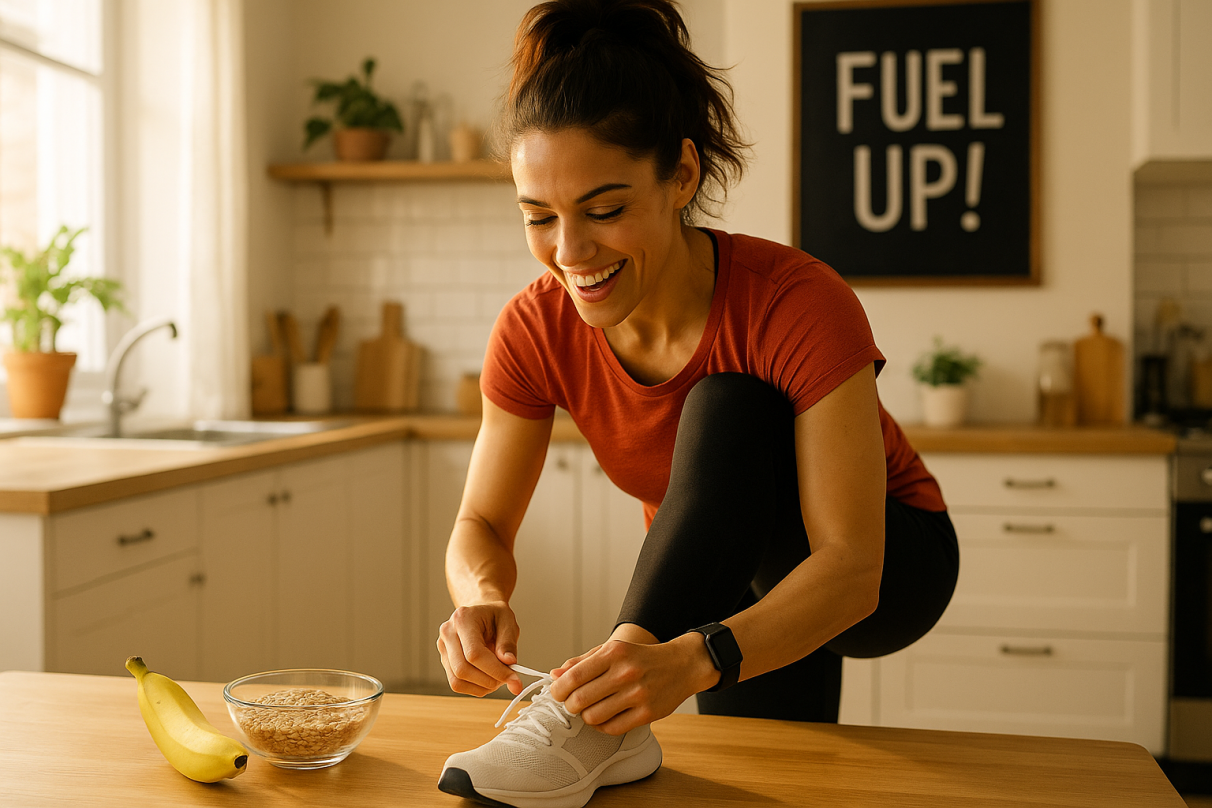Carbohydrates: The Energizer

Carbs often get a bad rap in diet talk, but in the context of exercise, they are your best friend. Carbohydrates are your body’s preferred source of energy, especially for moderate to high intensity activity. Think of carbs as high-octane fuel for your muscles and brain.
Why you need them: When you eat carbs, your body breaks them down into glucose, which either gets used immediately for energy or stored in muscles and liver as glycogen. During workouts, particularly cardio or any exercise that gets your heart rate up, your body taps into those glycogen stores. If you don’t have enough, you’ll run out of gas – literally hitting “the wall” where you suddenly feel weak or dizzy. Carbs also play a role in recovery: they help refill glycogen stores so you’re ready for your next workout and they spur an insulin response that, in combination with protein, helps drive nutrients into muscles post-exercise.
Quality matters: Not all carbs are created equal. Complex carbs (like whole grains, sweet potatoes, brown rice, oats, beans, and most fruits and veggies) digest slower, providing steady energy and fiber, plus a host of micronutrients. Simple carbs (table sugar, sweets, white bread, sugary drinks) digest quickly and can spike blood sugar. That’s not to say simple carbs are always “bad” – in fact, right around your workout time, quick-digesting carbs can be helpful. For instance, a ripe banana or a piece of white toast with jam before a workout is easy to digest and gives fast energy. But for your main meals, focus on complex carbs to keep you fuller and energized longer.
How much: If you’re active, carbs should make up a significant chunk of your diet. As mentioned earlier, about 45–65% of your daily calories from carbs is a general (Nutrition and athletic performance: What to consider)L177-L184】. For an average 2000-calorie diet, that’s somewhere between 225g and 325g of carbs per day. Another way to gauge is by body weight and activity: recreational athletes might aim for ~5-7 grams of carbs per kg of body weight on tra (Nutrition for the Athlete – 9.362 - Extension)0†L89-L97】, and those doing lots of endurance training might go even higher. But if you don’t love math, don’t worry. Practically, this means including a source of carbs at each meal – e.g., oatmeal or wholegrain toast at breakfast, brown rice or whole wheat pasta at lunch, quinoa or sweet potato at dinner, plus fruit or healthy grains for snacks.
Carbs and weight myth: Some fear that eating carbs will automatically make them gain weight. The truth is, if you’re using the energy, carbs won’t make you fat. Won’t eating carbs make me fat? Only if you eat too many overall calories beyond what you burn. In fact, excess of any macronutrient – be it carbs, fat, or protein – can lead to f (6 common sports nutrition questions answered - Human Kinetics Blog)e. So it’s not fair to single out carbs. What’s important is choosing nutritious sources most of the time and balancing intake with your activity level. Many athletes actually find that when they increase healthy carbs and cut back on junk food, they perform better and their body composition improves.
Timing: Carbs are especially important before and after workouts. Prior to exercise, a bit of carbs fuels your performance (more on pre-workout snacks later). After exercise, carbs help replenish energy stores and, when paired with protein, speed up recovery. During the rest of the day, include complex carbs in your meals to keep your overall energy up. If you tend to work out in the morning, dinner the night before acts as your “fuel” as well – so don’t skip the carbs at night if you have an a.m. gym session planned.
Favorite carb sources: Everyone has their go-tos. Some excellent choices: brown rice, whole wheat bread or pasta, oats, quinoa, potatoes or sweet potatoes, beans and lentils, fruits like bananas, apples, berries, and starchy veggies like corn or peas. If you’re on the move, something like a piece of fruit or even a sports drink can be a quick carb fix to perk you up before exercise. (Sports drinks are basically sugar + electrolytes – useful for long or intense workouts, but not necessary for short sessions.)
Imagine: Alex, a beginner cyclist, tried going on long rides while on a low-carb diet because he heard it would “burn more fat.” Unfortunately, he found himself hitting a wall at the 30-minute mark, feeling drained. His coach suggested he eat more carbs. Alex started eating a bowl of oatmeal with some fruit in the morning and carrying a sports drink on his rides. The result? He could pedal stronger and further – no more early wipe-outs. The difference was like night and day once his muscles were properly fueled with carbs.











Comments : 0